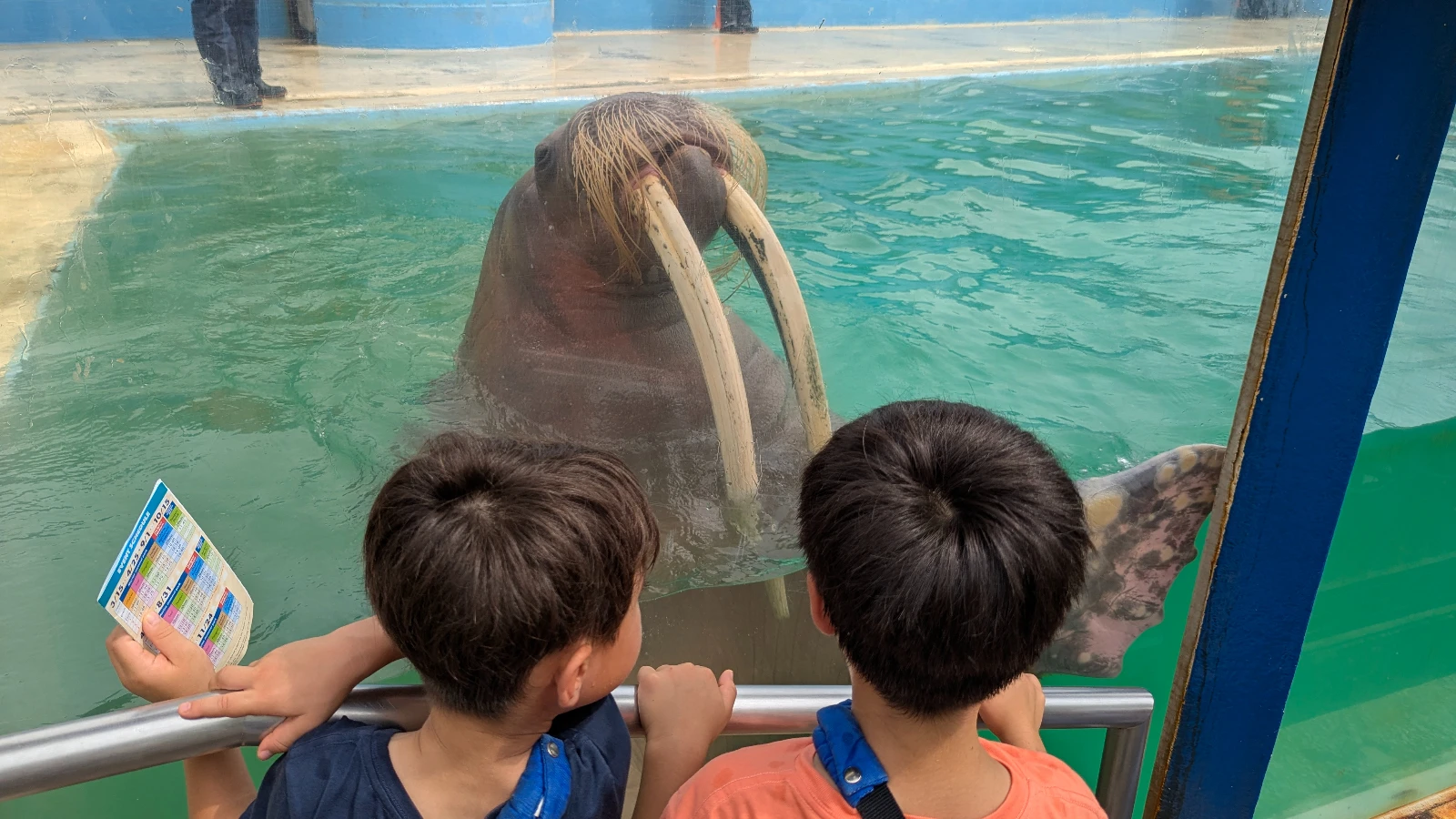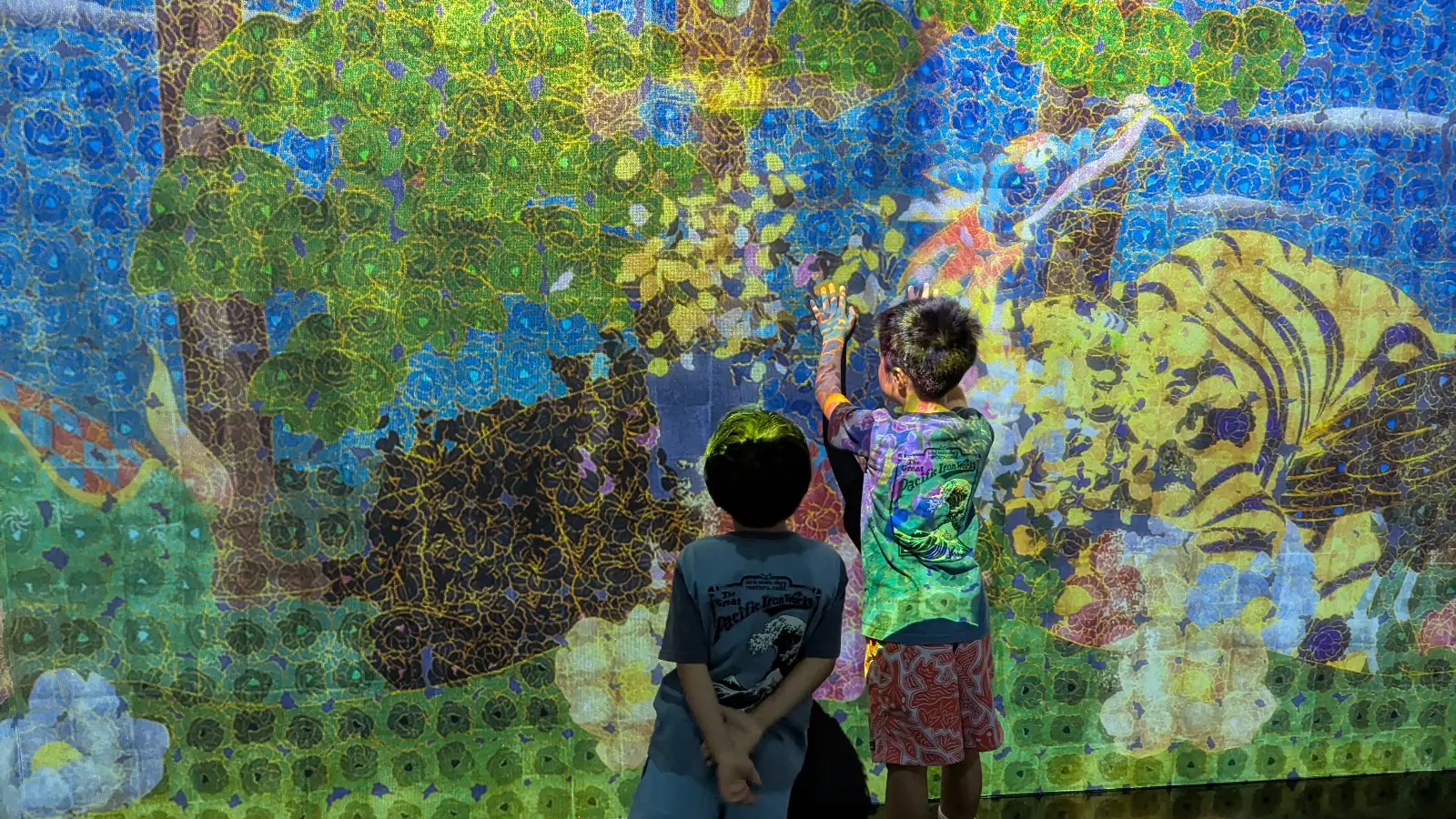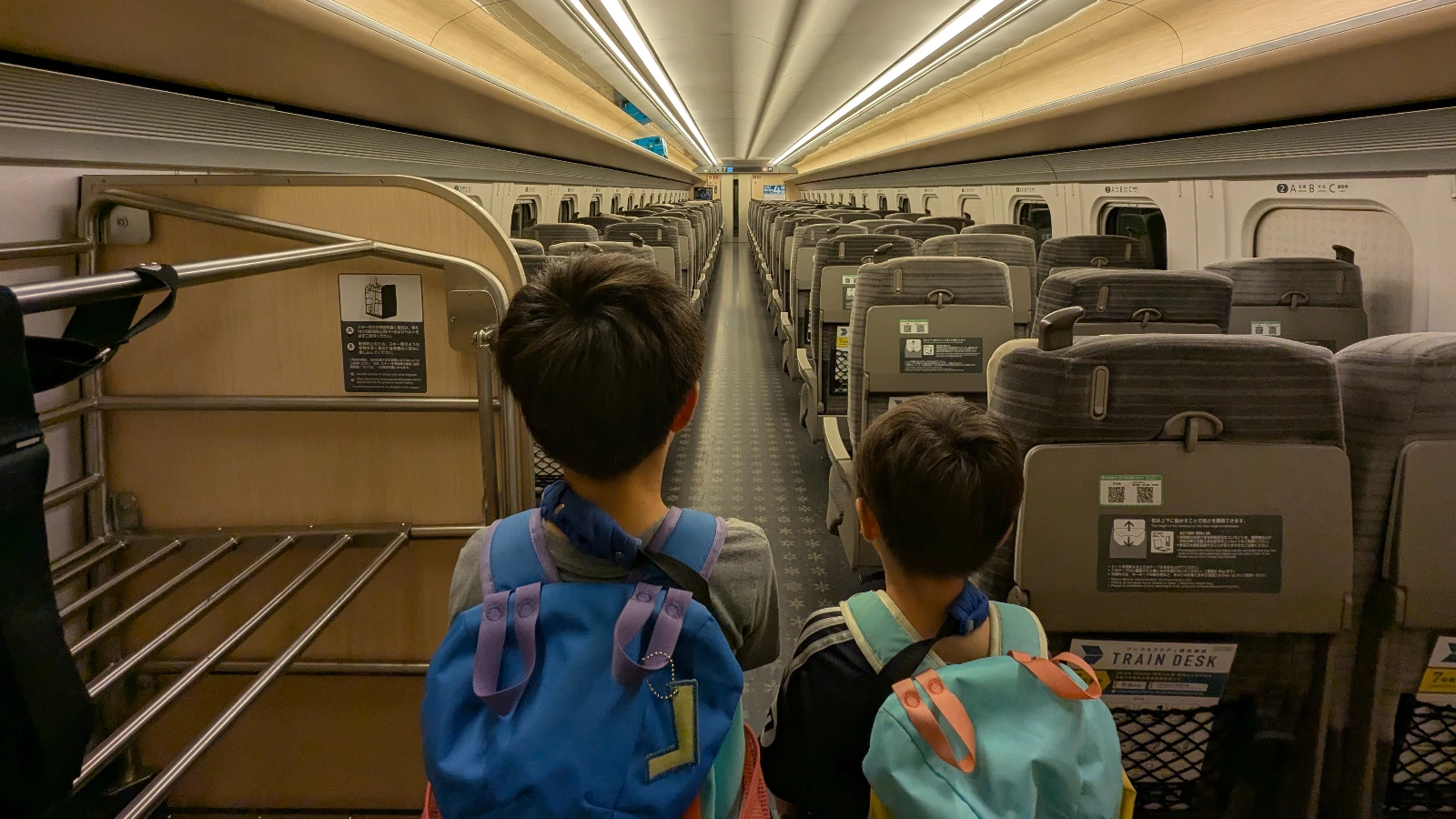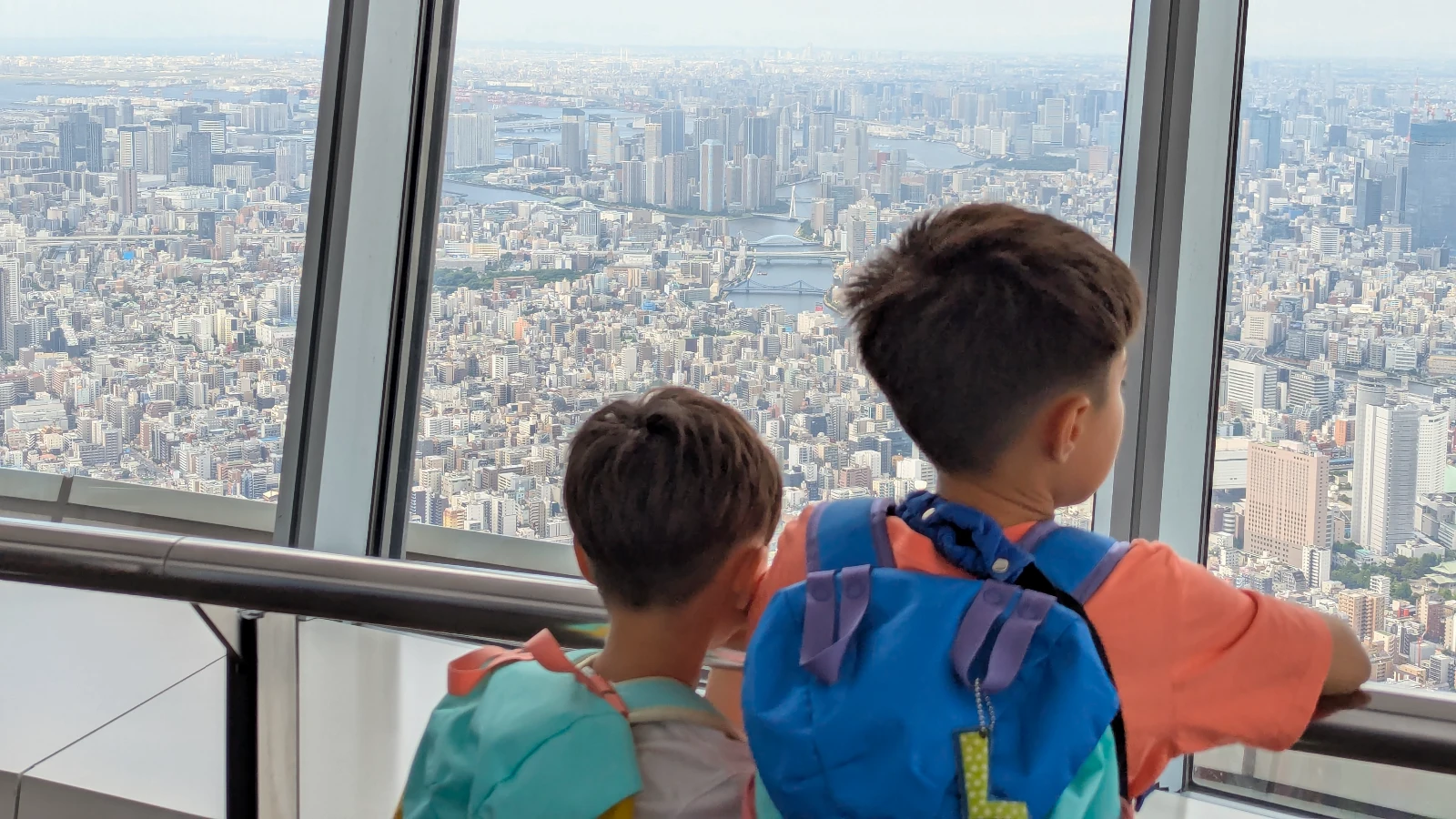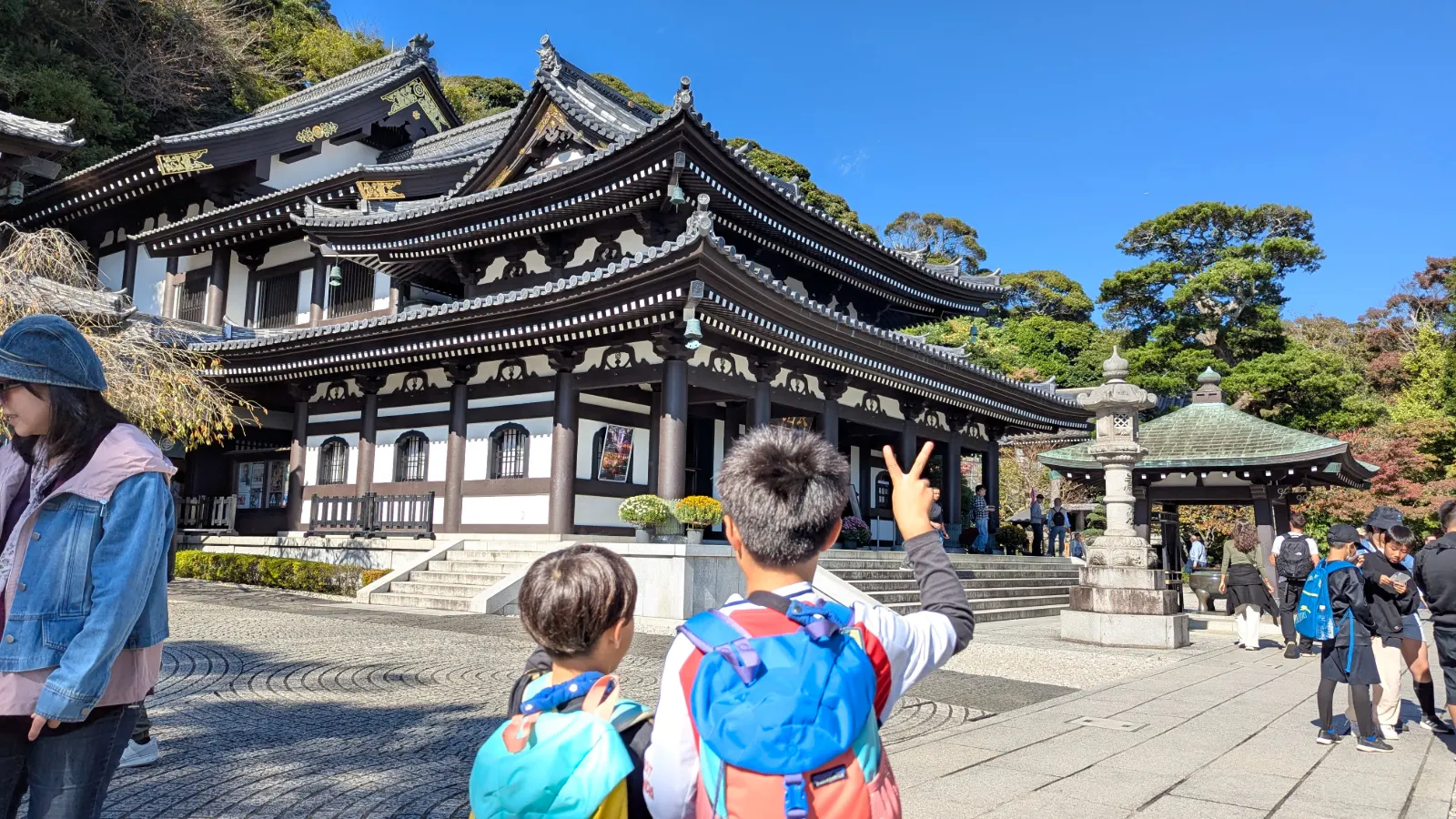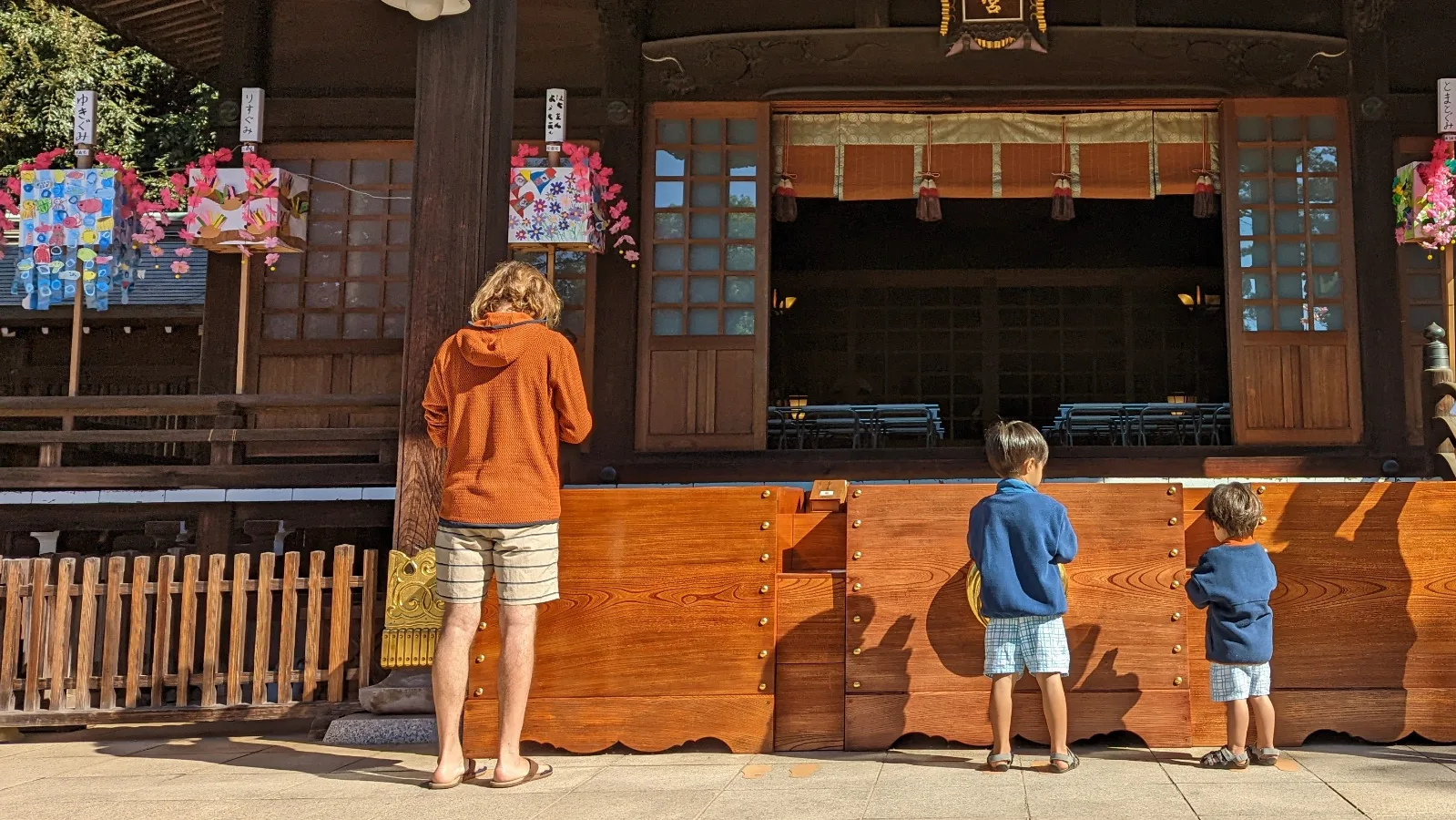
If you’re planning a trip to Japan with kids who can be noisy at times, you might already be wondering: What if they’re too loud? It’s a common question for families traveling to Japan, a country known for its quiet public spaces, strong cultural emphasis on manners, and clear expectations around Japanese etiquette for families. You’ve probably heard about hushed trains, peaceful shrines, and soft-spoken crowds. And if your child is the kind who bursts into song without warning or narrates their snack choices at full volume, that cultural difference might make you nervous.
I get it. I’ve been there. As a foreign parent raising two very energetic boys in Japan, I spent years worrying that every giggle or outburst would lead to side-eyes from every direction. I used to whisper-yell, break into sweats on silent trains, and constantly wonder if we were offending someone.
But over time, I learned a better way, not to silence my kids, but to help them understand when and where volume matters. I also realized something critical: Japanese families aren’t expecting perfection from you or your children. They just want to see that you’re trying.
So if you’re preparing for your family adventure in Japan and you’re worried about etiquette, noise, or how your child’s joyful volume might fit in, this guide is for you. Let’s talk about how to explore Japan with noisy kids in a way that’s respectful, low-stress, and even fun.
Disclaimer: This post contains affiliate links. If you click to purchase, it’s at no extra cost to you… when you book through our links, you help support LuNi Travels and the family guides we create!
Why Book Ahead? It’s quicker, avoids long lines, helps skip language barriers, prevents sold-out attractions, and solves payment issues at places that don’t accept credit cards. *Prices are subject to change.
Why Japan Feels Quieter: Understanding Cultural Norms
In Japan, there’s a strong cultural emphasis on keeping harmony in shared spaces. The concept of meiwaku means “causing trouble for others,” and it’s something kids grow up hearing from day one. That often translates to whispering on trains, quiet temple visits, and a lot of unspoken social cues.
It can feel intimidating at first, especially if you come from a culture where noisy play is just part of daily life. But here’s the thing: even Japanese kids have their loud moments. I’ve seen kids scream, throw tantrums, and melt down in the middle of a station. The myth that all Japanese children are perfectly behaved and silent just isn’t true.
What really matters, and what Japanese people notice most, is whether you, as a parent, are trying. Are you acknowledging your child’s outburst? Are you doing your best to redirect or calm them? If the answer is yes, you’re already doing what matters most.
Parent Insight: One of the biggest lessons I’ve learned as a parent in Japan is that children don’t need to be quiet to be respectful, they just need guidance. I used to think that every burst of laughter or loud question meant we were doing something wrong. But over the years, I’ve come to see those moments as opportunities, chances to teach empathy, timing, and cultural awareness. You don’t have to mute your child’s joy to be a respectful traveler. You just have to help them understand when it’s okay to be loud and why sometimes it’s not.
So… Are Kids Allowed to Be Kids?
Absolutely. And I say this as a father who has literally watched Nico gallop down a shrine path neighing like a horse while a monk looked on in silence.
You don’t have to silence your child’s joy. You just need to help them be aware of where they are. That’s what I tell Luca & Nico every day.
They know when we step into a temple or get onto a train that it’s time to use their “ninja voices.” Do they always remember? Not even close. But we gently remind them. And then we move on.
There are also plenty of times I tell Mama, “I don’t care if people are staring, the boys are having fun, and I’m happy for them.”
Kids will sometimes be loud. They might say or do something that doesn’t match local expectations. That’s okay. The point isn’t perfection, it’s growth.
Where Volume Matters (and Where It Doesn’t)
- Trains & Buses: Very quiet. Avoid boarding if your child is mid-meltdown. Wait a moment. Whisper voices only.
- Shrines & Temples: Quiet/respectful. Set expectations ahead of time. Kids can walk, talk, and explore, just with awareness.
- Restaurants: Moderately quiet. Most family spots are relaxed. Teach kids to use inside voices, and bring distractions.
- Parks & Playgrounds: Free play! Shouting, laughter, and chaos welcome. Let them run wild.
- Museums & Aquariums: Quiet indoors. Interactive ones like Kids Plaza Osaka are ideal for louder explorers.
How to Help Kids Adapt (Without Ruining the Fun)
- Make It a Game
- Try turning voice volume into a game. Use something like “Ninja Voice vs. Parade Voice” and ask your kids to guess which voice level is right for where you are. It keeps them engaged and makes it easier to remind them gently when things get a little too loud.
- Prep Before You Step In
- A little talk before entering quiet spaces helps. Ask, “What kind of voice do we need here?”
- Pack Quiet Distractions
- Sticker books, stories with headphones, little puzzles, these can save you in a long train ride or temple visit.
- Time It Right
- Avoid rush hour. If your child is already cranky or overstimulated, don’t force a shrine visit. Save it for later.
Papa’s Tip: Where Loud is Totally Okay
You don’t need to tiptoe through all of Japan. In fact, there are tons of places where being loud, silly, and curious is exactly what kids should be.
Some of our favorites:
- Kids Plaza Osaka – Total sensory overload in the best way
- Marine World in Fukuoka – Nico once roared at a sea lion. The sea lion responded.
- TeamLab Forest / Planets – You’re part of the art. Roar away.
- Round1 Spo-Cha – It’s chaos with trampolines. Enough said.
Look for where other kids are laughing loudly. If no one flinches, it’s your turn to play too.
Parent Insight: It’s easy to get caught up in the fear of being “too loud” in Japan, but that shouldn’t be the thing you focus on most about your trip. The real goal isn’t perfect behavior, it’s shared growth. Every moment you spend helping your child understand a new culture, you’re helping them become more empathetic, more curious, more aware. And you’re growing too. If you’re here, trying, learning, and guiding your child through unfamiliar spaces with love, you’ve already won the most important part of the journey.
Until Next Time…
I still get moments of doubt. Still wonder if someone is judging me. But now I remind myself: the important thing is being present and respectful, not being perfect.
If your child is screaming, don’t bring them onto a silent train. Wait it out. If your toddler is babbling in a shrine, gently remind them to lower their voice. And if you slip up, it’s okay. Apologize if needed, redirect, and move on.
The most important thing Japanese people want to see is effort. If you’re making an attempt, that is almost always enough.
So give yourself some grace. Let your kids be kids. Guide them with love. And remember, every culture has different expectations, but kindness, effort, and empathy are universal.
You’re doing just fine.
Stay curious, stay adventurous, and keep dreaming!
~ The LuNi Travels Family ~

